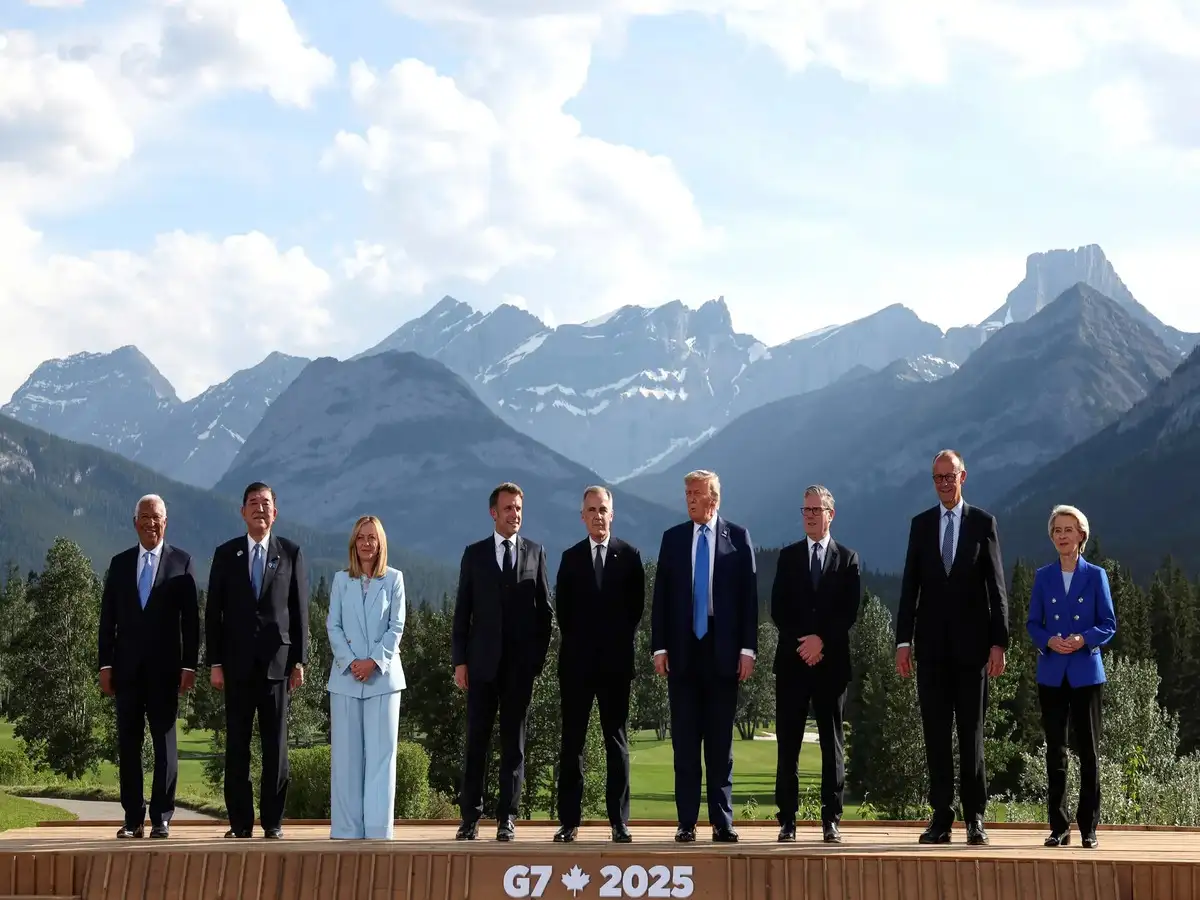G7 Backs Israel’s Self-Defense in Growing Conflict
As the military tension between Iran and Israel enters its fifth day, the international community is responding with increasing urgency. On June 16, 2025, the Group of Seven (G7) issued a sharp joint statement. The G7 reaffirmed Israel’s right to defend itself and directly accused Iran of supporting terrorism across the Middle East.
The conflict, initially viewed as a limited escalation, now risks turning into a broader regional war. The G7’s unified declaration sends a clear diplomatic signal, especially to Tehran, that its regional activities are under global scrutiny.
G7’s Direct Message to Iran: Stop Destabilizing the Region
During an emergency virtual summit, leaders of the United States, United Kingdom, France, Germany, Italy, Canada, and Japan released a joint communique. The message stated:
“Israel has the right to defend itself against threats and attacks, especially those orchestrated by state-sponsored terror. Iran’s destabilizing actions must end.”
This rare, unified condemnation highlights the growing frustration among Western nations over Iran’s support for armed groups like Hezbollah, Hamas, and the Houthi rebels. It also reflects increasing concern over drone strikes, missile launches, and cyber warfare involving Iranian-backed forces in Lebanon, Syria, and Gaza.
What Triggered the Current Escalation?
The current conflict was sparked by an Israeli airstrike on a weapons convoy in Syria, which Israel claims was intended for Hezbollah. Iran responded by launching coordinated drone and missile attacks via its proxies based in Lebanon and Yemen.
In response, Israel intensified airstrikes across the Lebanese border and inside Syria. Casualties have been reported on both sides, although numbers remain unclear due to access restrictions.
Simultaneously, Palestinian groups like Hamas and Islamic Jihad began firing rockets at Israel. This prompted retaliatory airstrikes by the Israel Defense Forces (IDF) on Gaza.
World Reactions: Clear Support, Growing Divide
While the G7 countries have taken a firm stand with Israel, global reactions are mixed.
- Russia urged both parties to exercise restraint.
- China proposed peace talks under UN leadership and warned against unilateral military actions.
- The United Nations Security Council plans a closed-door meeting, but chances of unity remain low.
India, balancing ties with both Israel and Iran, made a neutral appeal. It urged “all parties to avoid actions that increase tensions.”
Iran’s Harsh Response to the G7 Statement
Iran quickly dismissed the G7 statement as “biased and hypocritical.” Iranian Foreign Minister Hossein Amir-Abdollahian declared that Israel is the real aggressor and that Iran would not tolerate attacks on its allies in Lebanon, Syria, or Gaza.
Iran also accused the West of ignoring Israeli war crimes, particularly in Gaza and southern Lebanon. According to Tehran, its support for armed groups is part of a larger resistance against Zionist occupation and Western imperialism.

Rising Global Risks: Oil, Trade, and Security
The ongoing military exchanges are causing global economic and strategic concern. Oil prices have jumped by nearly 6% in just five days. Global shipping is also being disrupted, with vessels avoiding the Strait of Hormuz, a vital maritime route.
If the conflict spreads further, other Middle Eastern nations—such as Saudi Arabia and the UAE—may be pulled in. There’s also a risk that NATO allies could be indirectly affected depending on how Iran’s proxy forces behave.
US Military Moves and Political Messaging
The United States has deployed more naval assets to the Eastern Mediterranean and Gulf regions. According to the Pentagon, U.S. troops are on high alert, and surveillance of Iranian movements is ongoing.
President Joe Biden confirmed America’s “ironclad commitment” to Israel’s security. His remarks mirror those made during previous Middle Eastern flare-ups, reinforcing Washington’s long-standing alliance with Tel Aviv.
Diplomatic Pressure Builds, But Fragile
Efforts to de-escalate the crisis are ongoing but delicate. UN and European mediators are working behind the scenes. However, with the G7 backing Israel and Iran digging in its heels, diplomatic success remains uncertain.
The world is watching closely as the fifth day of fighting continues, and fears of a wider regional war grow stronger.
Israeli airstrike hits army base in Iran’s Zanjan: Reports
Israel-Iran conflict LIVE: Iranian strikes cause minor damage to U.S. embassy building in Tel Aviv



[…] G7 Defends Israel’s Right as Iran Conflict Intensifies […]
[…] G7 Defends Israel’s Right as Iran Conflict Intensifies […]